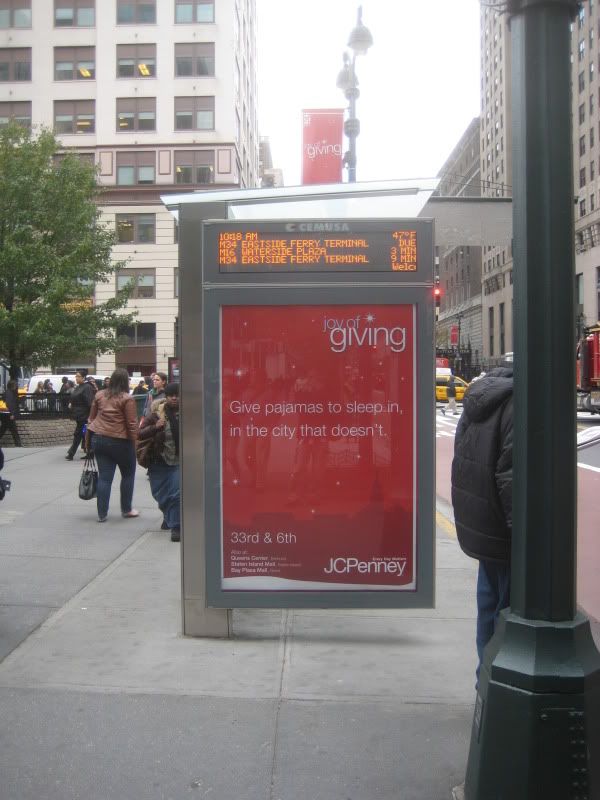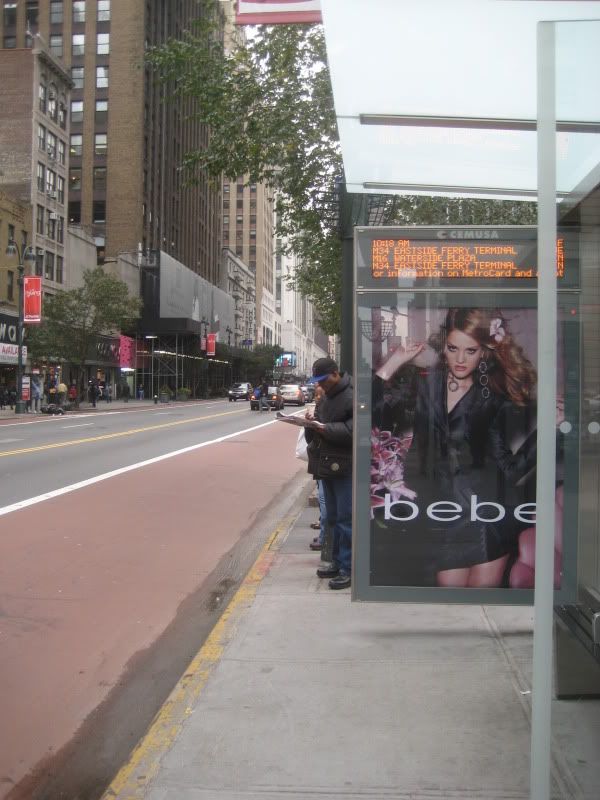I realize this isn't the most earth-shattering debate, but I still disagree with you in a number of ways.
Believe it or not there are a lot of people who can't afford mobile plans, let alone ones that include mobile internet. And if they can't afford basic service now, they're not going to be able to afford whatever becomes basic service down the line.
What's considered basic service today will be standard provision in the near future. True they won't be able to afford the fanciest service or gadget. But if the apps that work with standard provision service (and remember, the incentive for apps is to work broadly) then the transit experience is improved for everyone, not just ones with the fanciest gadgets and service.
There's a reason they don't just let people look at, say, commuter rail schedules online, even though there's a huge cost involved in printing them all out and distributing them.
Whaa? Commuter rail schedules are online. I'm also not against printing out schedules. I don't see how this is relevant.
Even if the T sold commuter rail schedules, the money would at least be cycled back to the T and not to AT&T.
But the T doesn't sell paper schedules. Aside from the obvious fact that nobody would buy them, printing is a costly process. So what's the problem with releasing data online? Why should the T be wary of "cycling money" to AT&T or apps developers if it improves the transit experience? This isn't a zero-sum game. Apps developers, AT&T, google, etc can all make money... AND the T can see its experience improved. A mutually-beneficial ecosystem that benefits riders in the end.
The way the technology curve goes, even if everyone has mobile internet ten years down the line, the upper middle class will be chattering about how much easier it is to use transit with augmented reality-capable devices. It goes on and on.
This is your strangest argument. Before even tackling the technology curve, I have to wonder why you would be against making transit easier for upper middle class people. Like it or not, these are the people who routinely bring their cars with them everywhere they go even when there are viable bus and subway routes. I think there are good "stick" solutions - congestion pricing, market-priced street parking - but also good "carrot" solutions to lure people out of their cars such as improved transit experiences and better usability.
In terms of the technology curve, allow me to play devil's advocate in a non-PC way by saying "poor people need rich people to buy new technology first if they eventually want to afford it." It's not just poor vs rich... I may not be poor but I do think that anyone who lines up at 4am to pay full price for an apple product that will be obsolete next year is a frivolous moron. But god bless them for it: if not for the early adopters, I'd never have my $99 iPhone.
Rich people will always have better technology - just like they will always on average drive better cars, live in more expensive homes, eat at more expensive restaurants and be more likely to buy organic tempe at Whole Foods. But unlike tax breaks for the wealthy, upper middle class technology adoption DOES have trickle-down benefits for all - and quite rapidly too.



